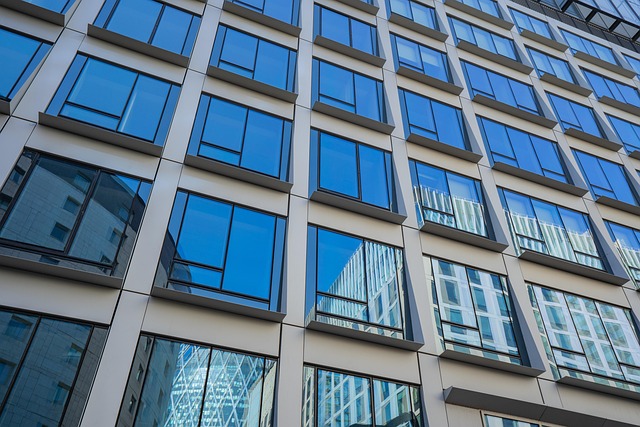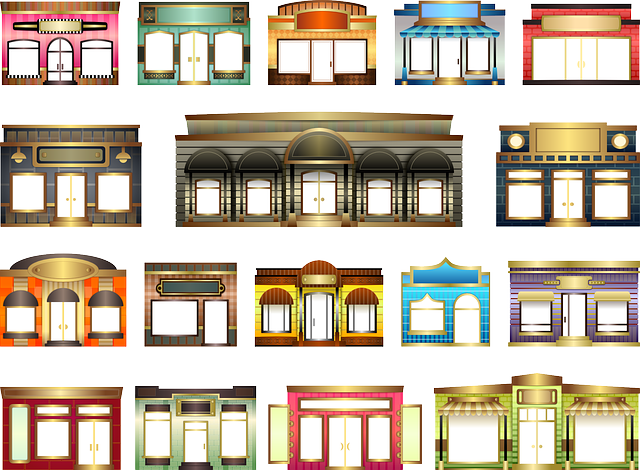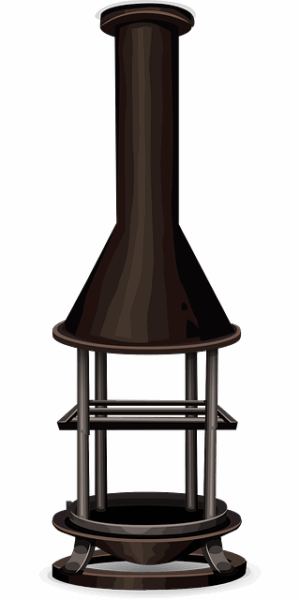Commercial unit heaters are essential for creating comfortable, safe environments in various business settings, offering flexibility through diverse fuel options (natural gas or electric) and adjustable temperature/humidity control. Choosing the right heater involves matching BTU capacity to space size, selecting efficient models with integrated safety features like automatic shutoff to prevent fires and optimize energy usage, especially in high-rise or hard-to-access areas, aligning with sustainability goals.
Commercial unit heaters are essential for maintaining comfortable indoor environments in various business settings. In this article, we explore the critical role of integrated safety shutoff features in these heating systems. Understanding these features and their benefits is paramount for business owners, as they ensure the well-being of occupants and prevent potential hazards. We’ll delve into different types of safety mechanisms, guiding you in selecting the ideal commercial unit heater for your specific needs while prioritizing safety.
- Understanding Commercial Unit Heaters and Their Importance
- The Role of Integrated Safety Shutoff Features
- Key Benefits of Implementing Safety Mechanisms
- Types of Safety Shutoff Systems in Commercial Units
- Choosing the Right Heater for Your Business Needs
Understanding Commercial Unit Heaters and Their Importance

Commercial unit heaters play a pivotal role in maintaining comfortable and safe environments within various business settings, from offices to retail spaces. These compact heating solutions are designed to efficiently heat specific areas, making them ideal for spaces where central HVAC systems may be impractical or inefficient. Commercial unit heaters offer both convenience and control, allowing building managers to precisely regulate temperature and humidity levels, ensuring optimal comfort for occupants.
With a wide range of options available, these heaters can be powered by various fuel sources, including natural gas fired units and electric heating models. Each has its advantages; for instance, natural gas fired heaters often have higher BTU capacities, making them suitable for larger commercial buildings. In contrast, electric heating options are generally more energy-efficient, contributing to reduced operational costs and a smaller environmental footprint. Understanding these variations is crucial when selecting the right unit for specific space heating needs in commercial buildings.
The Role of Integrated Safety Shutoff Features

Commercial unit heaters with integrated safety shutoff features play a pivotal role in ensuring the safety of occupants in various types of commercial buildings, from offices to retail spaces. These advanced systems are designed to automatically deactivate heating when certain conditions are met, such as excessive temperature or malfunctioning components. This proactive approach to safety is particularly crucial in environments where suspended installation of heaters might be common, like high-rise structures or locations with limited access for maintenance.
The integration of safety shutoff features extends beyond preventing fire hazards; it also optimizes energy efficiency. By cutting off power to the unit when heating isn’t necessary, these heaters help reduce unnecessary BTU capacity usage, aligning with the goal of many commercial spaces to implement energy-efficient HVAC systems. This not only minimizes operational costs but also contributes to a more sustainable and eco-friendly space heating approach.
Key Benefits of Implementing Safety Mechanisms

Implementing safety mechanisms in commercial unit heaters offers a multitude of benefits that extend far beyond compliance with safety standards. For one, these features significantly mitigate the risk of fires and other hazards, ensuring the safety and well-being of occupants in commercial buildings, offices, and retail spaces. A key advantage lies in their ability to detect potential issues—such as abnormal flame behavior or excessive heat—and automatically shut off the unit, preventing catastrophic failures.
Moreover, integrated safety shutoff features contribute to energy efficiency by avoiding unnecessary heating cycles. In cases of suspended installation or when using various heating sources like natural gas fired units or electric heating systems, these mechanisms help maintain optimal BTU capacity within HVAC systems. By ensuring space heating is controlled and safe, they not only enhance the overall comfort of commercial spaces but also promote energy conservation, thereby reducing operational costs.
Types of Safety Shutoff Systems in Commercial Units

Commercial unit heaters come equipped with a variety of safety shutoff systems designed to protect against potential hazards. One common type is the thermal shutoff, which automatically disconnects the heater when temperatures reach a preset limit, preventing overheating and fire risk. Another crucial system is the oxygen depletion detection (ODD), especially for units using natural gas fired heating. ODD sensors monitor the levels of oxygen in the space, shutting off the unit if it senses a potentially dangerous buildup of flammable gases.
For electric heating commercial buildings or retail spaces, overcurrent protection devices like circuit breakers and fuses serve as safety shutoff mechanisms. These components interrupt power flow if an excessive electrical current is detected, safeguarding against short circuits and electrical fires. Additionally, some advanced heaters feature smart safety controls that integrate with HVAC systems, offering precise temperature monitoring and remote control, thereby enhancing energy efficiency in space heating while ensuring optimal safety measures are in place.
Choosing the Right Heater for Your Business Needs

When selecting a commercial unit heater for your business needs, consider factors like space size and type, heat output required (measured in BTU capacity), fuel source — natural gas fired or electric heating — and energy efficiency ratings. The right heater should be tailored to your specific application, whether it’s for office heating in large open-plan spaces, retail spaces with suspended installation requirements, or other commercial buildings demanding precise space heating.
In addition to these considerations, look out for integrated safety features such as automatic shutoff mechanisms, which can prevent overheating and minimize the risk of fire. This is crucial for maintaining a safe environment, especially in areas where HVAC systems are not readily accessible for manual adjustments. Choose energy-efficient models that align with your sustainability goals and help reduce operational costs over time.
Commercial unit heaters with integrated safety shutoff features are essential for any business aiming to maintain a comfortable and safe environment. By understanding the importance of these heaters and their advanced safety mechanisms, businesses can ensure optimal performance while minimizing risks. With various types of safety shutoff systems available, choosing the right commercial unit heater tailored to specific needs is key to fostering productivity and peace of mind.






